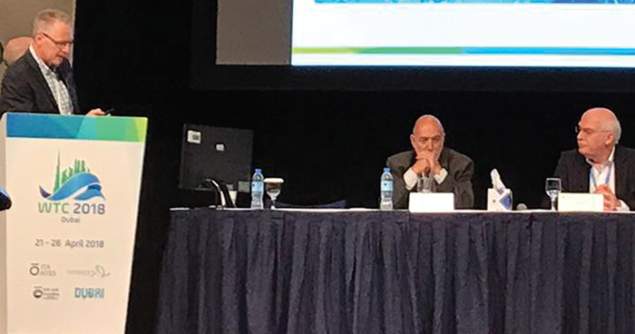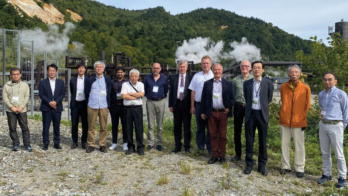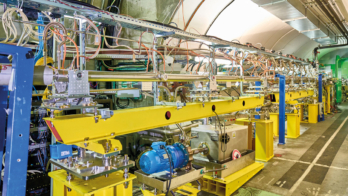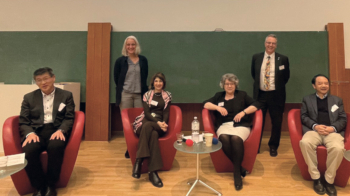
The World Tunnel Congress (WTC) brings together leading tunnel and underground-space experts from all around the world. This year, the congress was held in Dubai from 21 to 26 April and was attended by nearly 2000 professionals, with case studies illuminating the latest trends and innovations and discussions about the role of tunnels in supporting future sustainable cities. CERN’s Future Circular Collider (FCC) study – which is exploring the possibility of a 100 km-circumference collider (see CERN thinks bigger) – would require one of the world’s largest ever underground projects, generating great interest from WTC delegates.
The extensive underground tunnel works required for FCC were presented by John Osborne from CERN and by Werner Dallapiazza from ILF Consulting, who have been tasked with performing a cost and schedule study for the civil-engineering aspects of the FCC study.
The FCC could provide a facility able to host machines in several different collider modes, as well as four very large experimental caverns and service caverns at depths of up to approximately 300 m below the surface. The key challenges for civil engineering come from the difficult geology under Lake Geneva, the river Arve crossing and the area where the river Rhone exits the Geneva basin. In addition, solutions for the 9.2 million cubic metres of excavated rock and other environmental issues need to be studied further.





